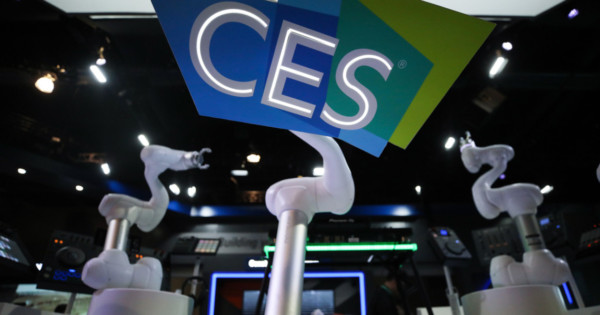
When the trade group behind CES—the Consumer Technology Association—first began planning this year’s show amid the height of the pandemic’s first wave last April, organizers had little idea of what the world, much less, the event, would look like come this January.
The Covid-19 quarantine was pushing people to get better acquainted with technology that might have appeared on the expo floor in previous years—videoconferencing tools, smart home devices and telehealth apps—while also making the prospects for in-person demonstrations of futuristic robots and drones that CES is famous for increasingly dim. (The CTA decided in summer that the event would be all-digital.)
The pandemic’s influence can be seen throughout the programming of the year’s biggest consumer tech trade show, which prominently features categories such as connected healthcare, gadgets geared for spending time at home and virtual entertainment.
“We’ve all seen over the last 10 months how we’ve had to adapt our lives—from how we live, how we work, how we get educated, how we get our entertainment—we’ve all had to change, and we’ve seen a huge acceleration in technologies during that time,” said Jean Foster, svp of marketing and communications for the CTA. “We wanted to make sure that we were showcasing those changes.”
Health and wellness
Perhaps the category to see the biggest increase in focus this year is health and mental wellness tech. Foster said healthcare has been a growing area for CES in the past few years, but it especially took off this year, with everything from smart face masks to telemedicine to wearables that monitor vital statistics. Some of the sessions on the topic include “Trust and The Impact of AI on Health Care,” “Digital Health in 2020: Rules of Contagion” and “Prescribing Digital Therapeutics as the Medicine of Today.”
On the mental wellness front, Raphael Rivilla, senior vp of media at agency Marcus Thomas, said he expects to see more focus on personalizing digital experiences to a consumer’s state of mind at a given time. “Imagine a website changing its offerings based on a user’s emotional state—maybe this happens when you log in and each experience can be different based on your current emotional state.”
Smart home devices
While connected home gadgets have always figured heavily into CES’ agendas in recent years, this year marked a shift in the specific kinds of smart devices people want, according to Jennifer Kent, vp of research at Parks Associates, who is speaking in multiple CES sessions at this year’s event, which runs Jan. 11-14.
Consumers are less concerned with remotely monitoring their homes when they aren’t there and more interested in products that enhance their at-home experience. And perhaps as a result of various forms of social unrest in the past year, consumers are also more interested in home security, Kent said.
“What’s been so interesting in tracking the smart home this year is the change in priority of where the value of the smart home is,” Kent said. “Now, we’re home all the time anyway so I can get up and change my thermostat if I want to, but we’ve seen a really big uptick in a stronger, kind of recommitment to one of the core value propositions of the connected home, which is safety, peace of mind and security.”
Virtual entertainment
Another area of focus this year is the massive growth of remote entertainment options spurred by the absence of live gatherings. Foster said that emphasis will be reflected across the conference’s offerings, from Verizon’s keynote on 5G networks facilitating virtual events to sessions on the future of the fan experience and home entertainment systems.
https://www.adweek.com/brand-marketing/how-the-pandemic-shaped-the-ces-agenda-this-year/

